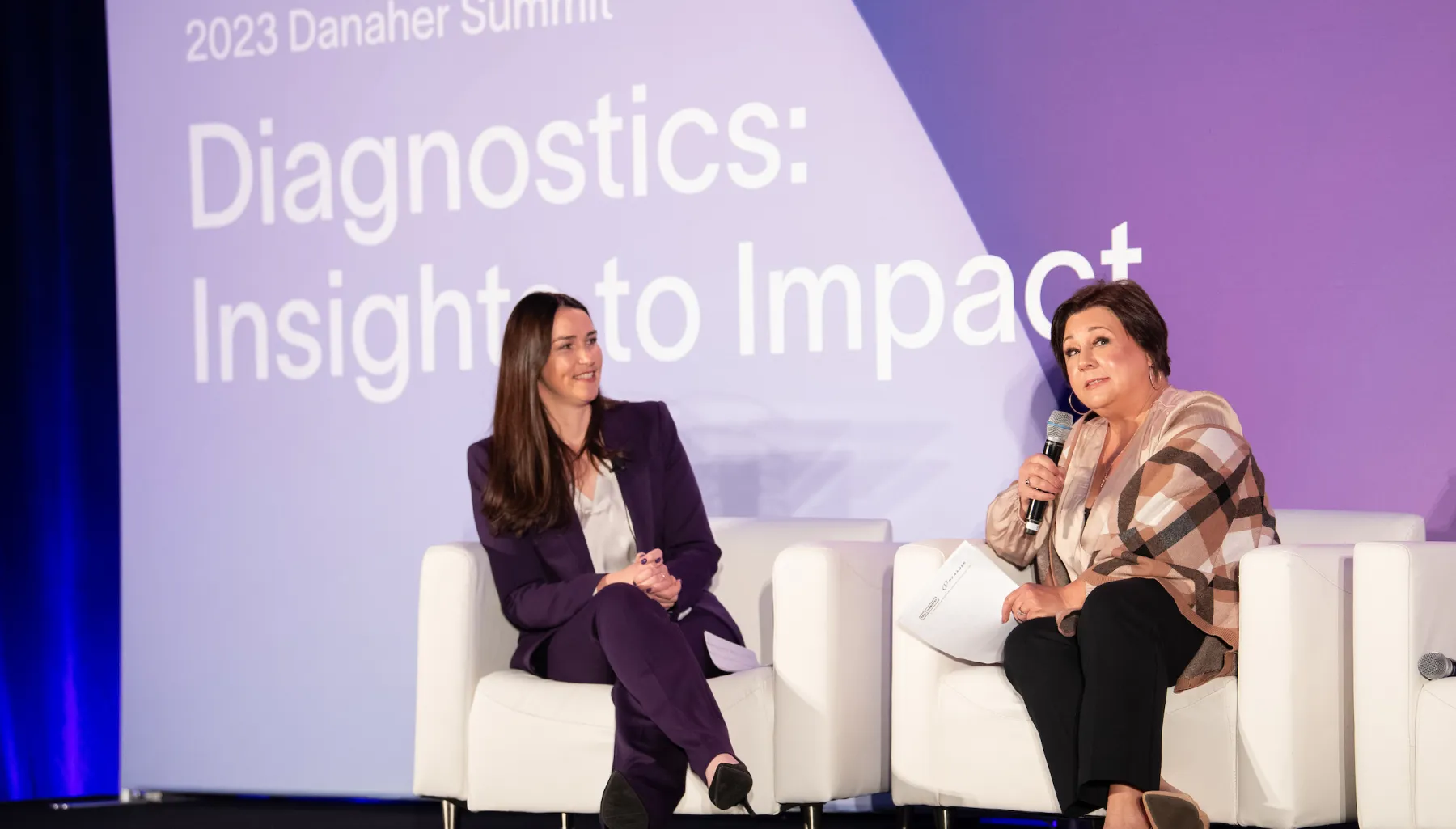On diagnostics as drivers of change in the healthcare system:
We’re really in a time of change...
There’s so much promise, but still so much we need to do to unlock the potential of diagnostics to bring about a new era of precision medicine for all.
It is my personal conviction that diagnostics is one of the essential disciplines in healthcare that will unlock and revolutionize how we deliver healthcare.
We have to make the next 20 years a golden age for diagnostics—a critical catalyst, an enabler for what can be a revolution in healthcare—more accessible, more effective and more equitable.
At Danaher, we’re eager to build that future.
Rainer Blair, President and Chief Executive Officer, Danaher Corporation
On the benefits of increased patient access to medical records:
We should all own our medical record, and we should encourage our patients to do the same—sign up for it, download it—then become conversant in it and become an “informed consumer,” so to speak. Because we need patients to be more engaged.
[How can we] empower patients and the families to be more engaged? We’ve created this mystery where people think “somebody else has to do that for me…” but we have our bank accounts on our phones now. We used to have to go to the bank to see [that information]. We [in medicine] have to make that change.
The question is: Can we create a way for patients to access tests without having to through “the system?” Then, they start to become advocates for themselves.
T. Clifford Deveny, President and CEO, Summa Health
On this importance of building community-level relationships:
If you can’t help empower and educate the patient, it doesn’t matter what diagnostics we have – which sound amazing – if [the patients] are not pushing and advocating [for themselves].
We have to empower the patient. We have to educate the patient. That is how we’re going to improve outcomes.
I love diagnostics and everything we’re talking about, but Latinos aren’t going to the doctor.
So if they’re not going [to the doctor], we have to go to them with the blood test and work on the trust—stay in the communities, not just [go] when you have the grants and then wipe your hands clean and leave—we have to go there and stay there and show a commitment to build that relationship.
Loriana Hernandez-Aldama, Patient/Survivor, Founder, ArmorUp for LIFE
On the critical role of healthcare system infrastructure:
We’re at the beginning of the end stage of the war on cancer ... We have the capacity, the science, to actually manage cancer and turn it into a chronic disease at worst.
However, we do not have the infrastructure to actually take [this innovation] into communities. Because when I think about the cancer moonshot, I’m thinking about the question, “how do we get that into every American neighborhood?”
And here’s the challenge: Our healthcare system as it currently is structured cannot do that.
Gary Puckrein, President and CEO, National Minority Quality Forum
On why access to cancer screens matters:
When you talk about cancer screening, one of the most important things is access. A lot of people fell behind with cancer screening during COVID, and for the most part, those same people who fell behind are the people who present with advanced disease.
We need to do better for those folks..
Stephen Hahn, CEO, Harbinger Health
On valuing the post-diagnosis patient journey:
Sometimes we oversimplify – we think, "[We’ve got a] diagnosis, let’s dust our hands, we’re done." But that’s just the beginning of your journey [as a patient]. Then you have this multi-modal, complex diagnostic situation going on, and how do you actually integrate that… so as to not disrupt your life?
Sarah Kehoe, Senior Director, Clinical Insights, Danaher
These quotes were edited for length and clarity.



